The C-Store champs discuss the benefits of building close relationships with suppliers
Paul Cheema, Malcolm’s Store, Coventry
Along with brother Pinda, Paul works with numerous suppliers and has seen improved sales across a multitude of categories as a result. He makes a big effort to seek out suppliers and build relationships with them.
Dan Cock, Whitstone Village Stores, Devon
Although Dan doesn’t receive as many rep visits as he used to, he still manages to maintain close links with some of his key suppliers, which helps him to increase his understanding of important categories.
Dee Sedani, Londis Etwall and Matlock, Derbyshire
Working with suppliers on in-store promotions helps to create retail theatre and capture customers’ attention. It also enables Dee to make his store stand out from local competitors.
Rav Garcha, owner of three Nisa stores and one unaffiliated shop in the West Midlands
By attending trade shows and retailer events, Rav has established strong links with many of his suppliers, which gives him a better grasp of where the sector is headed.
Which suppliers do you speak with directly on a regular basis?
Paul: We speak to First Drinks, Diageo, Warburtons, Allied Bakeries, Cadbury, Mars, Heinz and Unilever, to name a few.
Dan: We deal with about 40 suppliers, both big brands and local suppliers. We’re seeing less and less of the big brands as many are scaling down their visits, but we still see the tobacco reps, Cadbury and Unilever.
Dee: I regularly deal with Coca-Cola, PepsiCo, Kellogg’s, Cadbury, Camelot and Heineken.
Rav: I have direct relations with Pepsico, Britvic, Cadbury, Mars, and most of the beer guys, including Heineken.
Do you insist on seeing suppliers yourself, or do you delegate this to staff?
Paul: Pinda and I see all the suppliers, and staff get involved when it comes to implementing category changes, keeping standards high and making more sales. We monitor the sales uplift and we’ll discuss a reward for staff with the supplier.
Dan: I like to see them myself because we keep our range tight and when they want to sell us stuff, I am there to make the buying decisions.
Dee: Reps see the store managers and I deal with the retail account managers.
Rav: I tend to meet the head supplier myself and introduce them to members of staff.
Is all supplier contact good?
Paul: It’s all good. We welcome them and listen to what they have to say.
Dan: Yes, we’re always interested to hear from suppliers.
Dee: I prefer to have close contact with a handful of key suppliers, rather than dozens and dozens. When I speak to new suppliers, I’ll ask them about the market and test them with an order and then decide whether or not to stay with them.
Rav: The only bad supplier relationships are those when the individual person isn’t easy to get on with. Off the back of conversations we’ve had in store, I’m friends with some of the suppliers on my personal Facebook account.
How have your relations with suppliers changed in recent times?
Paul: They have grown because we are never shy to let a supplier share the success of our store with other retailers.
Dan: We’ve got really good relationships with all our suppliers. I tell them that this is a partnership and we have to work together to deliver for the customer. When I first started out, it was incredibly hard to get suppliers to take you seriously. For too long manufacturers have thought of the sector as just little stores selling a few bits and pieces. But now they are realising that there is a big opportunity with us.
Dee: I think some of the suppliers have become more frugal - one firm used to take me and my kids and other retailers to the local football stadiums, but they’ve stopped this as a result of cutbacks. Suppliers do seem to have started taking our sector more seriously over the past few months, though.
Rav: They have become stronger and better.
What areas do you discuss with suppliers beyond the sales of their specific products?
Paul: I ask them about the category as a whole and how they can drive sales. For example, next week we are doing a promotion with a 25g cereal and a milk for £1 after meeting with Nestlé Cereal Partners.
Dan: They are generally always interested in the state of the market - customers’ habits, which categories are doing well, which aren’t, and what has good margins.
Dee: We look at what consumer promotions they have coming up, and what marketing material they can provide. I want to know what they can give me to make my promotion stand out from the store down the road.
Rav: Discussions used to be more about their products, but now a lot are to do with the findings of companies such as HIM and its research on shopper missions. When suppliers come into the store, they want to know who their customers are, what these people are buying in addition to their products, and what occasions they are shopping for.
How do you benefit from having better relations with your suppliers?
Paul: You have a better understanding of categories.
Dan: You start to see conclusions to the discussions you have with the reps - when you give them feedback you see that they are listening and implementing changes.
Dee: Better supplier relations mean that I can get more volume through and have better in-store theatre.
Rav: We benefit from having an eye on what tomorrow is going to look like. In the past, we’ve been reactive, but better supplier relations mean we can be trail blazing.
How do suppliers benefit from having better relations with c-stores?
Paul: They are able to increase their sales.
Dan: Ultimately, there’s a greater chance that their products will be stocked and that they will shift more products.
Dee: They make sure the right range is in stock, which will improve their sales. Also, they get to learn what sells well in particular regions, for example Walkers Snaps snacks are really popular in the North.
Rav: They want to see results, so it’s a case of give and take. You need to do what you agreed you would. For example, if they ask you to stock a particular product and promote it, and report back on how well it sold.
What recent projects have you worked on with suppliers?
Paul: First Drinks came and worked on our spirits offering. We put up a banner outside asking customers to picture the perfect gift we reviewed our spirits sales and re-laid the category, moving from vertical to horizontal blocking. Overall, the category was up 34% year on year. We also had Nestlé Cereal Partners re-lay our cereal category and we’ve seen a big uplift as a result.
Dan: We’ve done a lot with Walkers. The division between grab bags and sharing was becoming muddled, so we’ve now replaced grab bags with standard bags. Now we never have any crisps going out of date.
Dee: We are to run a Heineken promotion on Strongbow Dark. We have T-shirts and glasses to give away, and expect a sales uplift as a result.
Rav: We’ve been doing analytics on WKD with SHS. They ran a tasting session and gave us some jugs to go with the product. We looked at a report seven months later versus the previous year and we’d seen a 300% sales increase.
How could your relationships with suppliers be improved?
Paul: They are already good, so they could only be improved by developing them more.
Dan: More suppliers should have open meetings with convenience retailers. I went to an Imperial Tobacco meeting recently and got to speak with key decision- makers and other retailers. It was so nice to know that they were taking on board our suggestions.
Dee: I’m in a good space at the moment, so I’m happy.
Rav: Probably by sitting down with them more often.
What would your advice be to retailers who don’t have strong relationships with their key suppliers?
Paul: Get out of your box and network with suppliers. Tell them about yourself and invite them to your store.
Dan: Read the trade press. It’s a great place to start. Then you can start picking up the phone. Ring your symbol group and take time out from your shop floor to visit suppliers.
Dee: I would advise them to pick five of their top suppliers and call them up, or go to a trade show to meet them. You need to sell yourself to the supplier and show that you are serious about their products.
Rav: You’re missing out! Take the opportunity to spend time out of your business and get in front of a supplier.
Why is important to maintain good supplier relations?
Paul: It’s important because you always want to keep building the relationship between sales and profitability.
Dan: You need to keep supplier relations good to enable you to stay on top of your range and ensure the brands represented do well.
Dee: It’s all about support - they supply products which make up a key part of my business and they can help advise on them.
Rav: You need to maintain good supplier relations to be able to strengthen your relationship between your store and that supplier’s particular product and the customers who come in to buy it from you.
How do you make contact with suppliers?
Paul: We see suppliers by appointment in-store, and we also meet people at trade events.
Dan: I try to encourage appointments suppliers are getting better at knowing when I’m in store. I’m always up for going to events, too, so we’ll network with suppliers there.
Dee: If they are visiting me in-store, suppliers must make an appointment. I also go to a lot of trade shows to network, both with fellow retailers and suppliers.
Rav: We arrange for main suppliers to come in and work together with us on a project. It’s really important to get out of the store to meet suppliers, though. Most of your links are made outside. I think that independent retailers can sometimes come across as unapproachable, so going to events is a good way to make contact.



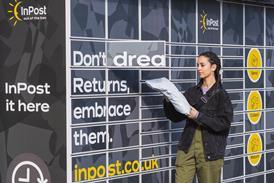
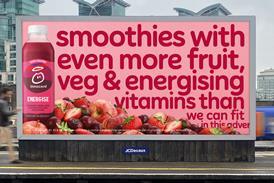










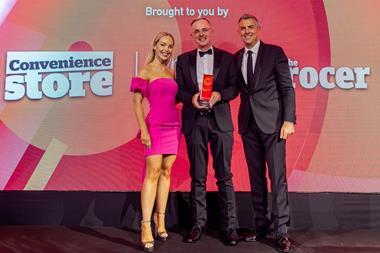
![C-Store_Champions_logo-CHOSEN[1] 2023](https://d2dyh47stel7w4.cloudfront.net/Pictures/380x253/6/5/7/301657_cstore_champions_logochosen12023_817064.jpg)

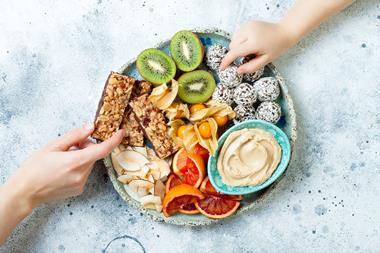
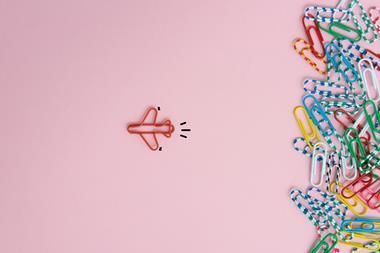

No comments yet